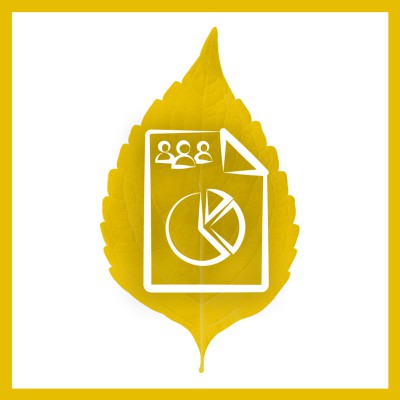 SEARCH
SEARCHProduct successfully added to your shopping cart
There are 0 items in your cart. There is 1 item in your cart.
Psychological Capital Questionnaire
Authors: Fred Luthans, Bruce J. Avolio, & James B. Avey
Psychological Capital (PsyCap) is a positive state-like capacity that has undergone extensive theory-building and research.
The PCQ, a measure of PsyCap with 24 items, has undergone extensive psychometric analyses and support from samples representing service, manufacturing, education, high-tech, military and cross cultural sectors. Each of the four components in PsyCap are measured by six items. The resulting score represents an individual's level of positive PsyCap.
Copyright © 2007 by Fred Luthans, Bruce J. Avolio, & James B. Avey
- Buy It
- Sample Items
- Product Specs
- Translations
- Resources
- Related Products
- Manual$50.00Includes details on reliability, validity, scoring, etc. and a review-only copy of the PCQ forms. PDFs are not refundable.In Stock
- Multi-rater Report$75.00Builds a report that interprets and compares ratings of an individual to their self-rating. You invite participants to take the survey and Transform™ generates their reports.In Stock
- Group Report: Multi-rater$200.00Builds a report that calculates and summarizes average PCQ Multi-rater scores for a group of participants.In Stock
- Individual Report: Self Form$15.00Builds a report that interprets an individual's PCQ Self Form scores. You invite participants to take the survey and Transform™ generates their reports.In Stock
- Report About Me: Self Form$20.00Interprets and reports on your PCQ Self scores. You complete the survey and Transform™ generates your report. Transform will connect this report to the "Send To" email provided at checkout. Note: This product is for a single use, with automated survey administration. For multiple uses, buy instead the Individual Report product in quantity needed.In Stock
- Group Report: Self Form$200.00Builds a report that calculates and summarizes average PCQ Self Form scores for a group of participants.In Stock
- Transform Survey Hosting: Multi-rater Form$8.80Minimum purchase of 10. Minimum purchase quantity 10 enables you to invite 10 participants, plus their raters, to the 360-style PCQ assessment. Online administration via our Transform™ system includes data collection with raw scale scores by participant and rater. Customization services are available.In Stock
- Transform Survey Hosting: Self Form (Data)$2.75Minimum purchase of 20. Allows you to administer the PCQ Self Form as an online survey using Mind Garden's Transform™ System. Includes data collection: data file with participants' raw data and raw scale scores. Optionally, Individual Reports and Group Reports can be generated from the collected data - requires the purchase of report licenses. Customization services are available.In Stock
- Transform Survey Hosting: Rater Form (Data)$2.75Minimum purchase of 20. Allows you to administer the PCQ Rater Form as an online survey using Mind Garden's Transform™ System. Includes data collection: data file with participants' raw data and raw scale scores. Customization services are available.In Stock
- License to Administer$2.75Minimum purchase of 50. Allows you to administer the PCQ as an online survey via a non-Mind Garden survey system or as a paper and pencil survey. The downloadable PDF file includes one copy of the PCQ, scoring key, and permission to administer the PCQ up to the quantity purchased. The PDF is non-refundable.In Stock
- Trainer's Guide for Developing Psychological Capital$100.00Resource tool designed to aid trainers in developing a workshop for teaching about Psychological Capital and for how to use the PCQ to create positive behavioral change.In Stock
- Research Permission$0.00The authors are making the PCQ available to researchers who meet specific requirements. A key requirement is that you will only use the PCQ for non-commercial unsupported research purposes and not for consulting, training or any similar function; you agree to not use the content for profit-seeking or other financial or commercial motivations.In Stock
Features of the PCQ
Purpose: Measure Psychological Capital (PsyCap)
Length: 24 items
Average completion time: 10-15 minutes
Target population: Working adults
Uses of the PCQ
- PsyCap assessment and development
- Organizational development
- Personal development
Scales
Hope
Efficacy
Resilience
Optimism
What is PsyCap?
Psychological Capital is defined as:
"an individual's positive psychological state of development and is characterized by: having confidence (self efficacy) to take on and put in the necessary effort to succeed at challenging tasks; making a positive attribution (optimism) about succeeding now and in the future; persevering toward goals and, when necessary, redirecting paths to goals (hope) in order to succeed; and when beset by problems and adversity, sustaining and bouncing back and even beyond (resilience) to attain success."
--Luthans, Youssef & Avolio, Psychological Capital (Oxford University Press, 2007)
Thus, the PsyCap consists of efficacy, optimism, hope and resilience and when combined has been shown to represent a second-order, core factor that predicts performance and satisfaction better than each of the four factors that make it up (Luthans, Avolio, et al., 2007).
Published research on PsyCap has found that it is related to multiple performance outcomes in the workplace, lower employee absenteeism, less employee cynicism and intentions to quit, and higher job satisfaction, commitment, and organizational citizenship behaviors. Research has also found PsyCap can be enhanced by a supportive work climate. In terms of being state-like, PsyCap has been developed by short training sessions in both classroom and field settings and electronically through the internet.
For Non-Commercial Unsupported Research, please order the PCQ Research Permission.
If you are unable to find the translation you need, you can request permission to make a translation.
Available with PCQ Transform™ Survey Hosting:
Regardless of which translation you select, participants can select and change any of these languages while taking the survey.
- Finnish - Self Form and Multi-rater Form only
- Italian - Self Form only
Available with PCQ License to Administer and Research Permission:
These translations are available free of charge with your license purchase. Also available with PCQ Research Permission.Translations are provided in a separate pdf-format file. Select the language from the Translation drop-down list. Need multiple translations? Contact us.
- Albanian - Rater Short Form only
- Arabic - Self Form only
- Bengali - Short Form only
- Bulgarian - Short Form only
- Cambodian - Self Form only
- Chinese-Cantonese - Self Form only
- Chinese-Mandarin - Self Form only
- Croatian - Self Form only
- Czech - Short Form only
- Danish - Short Form only
- Dutch - Self Form only
- English--UK - Short Form only
- Estonian - Self Form only
- Finnish
- French
- French--Canada - Self Form only
- German
- Greek
- Hebrew - Self Form only
- Hindi - Self Form only
- Hungarian - Self Form only
- Indonesian - Self Form only
- Italian - Self Form only
- Japanese - Self Form only
- Korean - Self Form only
- Latvian-Lettish - Short Form only
- Lithuanian - Self Form only
- Malay
- Norwegian - Self Form only
- Polish - Self Form only
- Portuguese - Self Form only
- Portuguese--Brazil - Self Form only
- Punjabi - Short Form only
- Romanian - Short Form only
- Russian - Short Form only
- Serbian - Short Form only
- Slovenian - Self Form only
- Spanish
- Swedish - Self Form only
- Tagalog - Short Form only
- Tamil - Short Form only
- Thai - Self Form only
- Turkish - Self Form only
- Urdu - Self Form only
- Vietnamese - Short Form only
Note: We cannot assure translation quality — many are made by individual researchers and we are not necessarily familiar with the particular language or dialect. Some of the translations are partial and typically do not have validation data. Basically, we offer whatever is available to facilitate your work.
Fred Luthans, Carolyn M. Youssef-Morgan, and Bruce J. Avolio
Oxford University Press, 2015
- Presents the most comprehensive approach to applying positive-psychology science to workplace applications.
- Explores the roles of the four positive psychology constructs of efficacy, hope, optimism, and resiliency.
- Provides two reliable and valid measures of psychological capital (PsyCap).
- Analyzes return on investment and dollar impact of psychological capital.
- Outlines the practical value of PsyCap in terms of assessment, development, performance, and organizational effectiveness.
- Each copy includes a complimentary PsyCap online self-assessment.
Psychological Capital: An Evidence-Based Positive Approach
Fred Luthans and Carolyn M. Youssef-Morgan
Annual Review of Organizational Psychology and Organizational Behavior, 2017. 4:17.1-17.28
- The article first provides the background and precise meaning of PsyCap and then comprehensively reviews its measures, theoretical mechanisms, antecedents and outcomes, levels of analysis, current status and needed research, and finally application. Particular emphasis is given to practical implications, which focuses on PsyCap development, positive leadership, and novel applications such as the use of video games and gamification techniques. The overriding theme throughout is that PsyCap has both scientific, evidence-based rigor and practical relevance.
Positive Psychological Capital (Wikipedia)
Positive psychological capital to help combat the mental health fallout from the pandemic and VUCA environment
Fred Luthansa and Julie Dyrdek Broad
Organizational Dynamics 51(2): 100817, April-June 2022.
Journal of Leadership & Organizational Studies
Special Issue: Psychological Capital
Volume 21, Issue 2, May 2014
Meta-Analysis of the Impact of Positive Psychological Capital on Employee Attitudes, Behaviors, and Performance
James B. Avey, Rebecca J. Reichard, Fred Luthans, Ketan H. Mhatre
Human Resource Development Quarterly, vol. 22, no. 2, Summer 2011
The Development and Resulting Performance Impact of Positive Psychological Capital
Fred Luthans, James B. Avey, Bruce J. Avolio, Suzanne J. Peterson
Human Resource Development Quarterly, vol. 21, no. 1, Spring 2010
Positive Psychological Capital: Measurement and Relationship with Performance and Satisfaction
Fred Luthans, Bruce J. Avolio and James B. Avey
Personnel Psychology 2007, 60, 541–572
Assesses personality traits with a full sphere of descriptive adjectives. The ACL provides a convenient, standardized method for recording and generating meaning for personal attributes of an individual. The ACL form can be used for self or observer ratings and Transform provides self or multi-rater assessment and reporting.
The organizational context of burnout.
Measures the components that comprise Authentic Leadership: self awareness, transparency, ethical/moral behavior, and balanced processing.
Developmental exercises to help you improve your leadership skills.
A classic measure of the cognitive styles of field dependence-independence.
Recognized for more than a decade as the leading measure of burnout. The MBI assesses professional burnout in human services, education, business, and government professions.
Combines the AWS and MBI forms to measure burnout with worklife context.
The benchmark measure of transformational leadership.
Combines the ALQ and MLQ surveys so you can conduct a single survey on Transform™ rather than two separate surveys. For purchase of reports or for PDF licenses, see each instrument separately.
Evaluates influence strategies in organizational relationships.
A measure of verbal, non-verbal social competence and emotional intelligence.
Measures a range of job behaviors and practices referring to beliefs in one's command of the social requirements necessary for success in the workplace.

 LOGIN
LOGIN  BLOG
BLOG
 CART
CART










